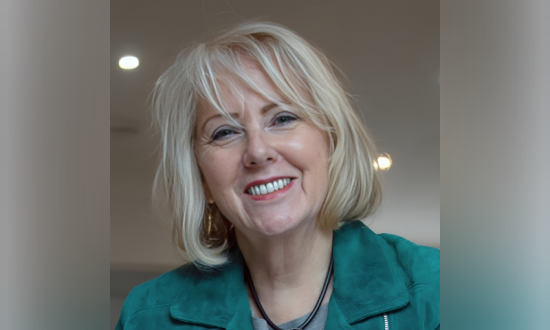Elaine Gold is an independent consultant and Co-Founder and until Dec 2023, MD of GEN UK. Elaine became active in GEN over 12 years ago when living in the Middle East for 8 years. Working in leadership and organisational change, Elaine delivered consultancy and coaching interventions covering leadership development, inclusion, and diversity, teambuilding, and one to one development. Elaine has travelled to over 40 countries and delivered workshops and speaking engagements in over 20 countries. Elaine understands the complexities and demands of working cross-culturally and in diverse organisations. Elaine focuses on supporting female founders in the transition from Founder to Leader.
When I started out on my career as a management consultant over 35 years ago, I had my share of comments such as ‘talks a lot of sense, for a woman’ and many more. Over subsequent years, I have worked with many female leaders and founders and found that although much progress has been made, the challenges facing women in corporates and especially female founders, continue to hinder progress.
In this article, I delve into the key challenges they encounter, not just in the initial stages of founding a company, but also as they navigate the crucial transition from founder to leader.
From Founder to Leader: A New Set of Challenges
The elation of launching a business can quickly morph into the overwhelming responsibility of leading a team and scaling your vision. This transition from founder to leader presents a new set of challenges for all entrepreneurs, but for females, these hurdles can be amplified by ingrained societal biases and a lack of female role models.
Self-Leadership and Imposter Syndrome
Many female founders grapple with imposter syndrome, a feeling of inadequacy despite their achievements. This can hinder their confidence in decision-making and leadership abilities. Research by Harvard Business Review suggests that women are more likely to attribute their success to external factors, while men tend to credit their own skills. Building self-awareness and surrounding yourself with supportive networks can be crucial in overcoming this hurdle.
Leading Others: Breaking Gender Stereotypes
The business world is often perceived as a male domain, leading to unconscious bias against female leaders. A study by PWC found that women are less likely to be seen as possessing the decisive and assertive qualities traditionally associated with leadership. This can make it difficult for them to command respect and authority, particularly from more senior male colleagues.
Maintaining Culture and Vision
As teams grow, maintaining a clear company culture and vision becomes paramount. Female founders often bring a unique perspective to the table, focusing on collaboration, empathy, and work-life balance. However, ensuring these values are ingrained in the company culture as it scales can be challenging, especially when facing pressure to conform to more traditional, hierarchical structures.
Managing a Growing Team: Delegation and Prioritisation
As a company expands, female founders may struggle with delegation, fearing a loss of control or a perceived lack of trust in their team. Developing strong delegation skills and fostering an environment of shared responsibility is crucial for effective leadership. Prioritisation also comes into play – female founders often juggle personal and professional commitments, making it essential to learn how to manage their time effectively and prioritise tasks.
Processes and Procedures: Building a Sustainable Foundation
The initial stages of a startup are often fuelled by passion and a can-do attitude. However, as the company grows, establishing clear processes and procedures becomes essential for smooth operation and maintaining quality. Female founders, accustomed to the fast-paced, dynamic environment of a startup, may find this shift towards structure and bureaucracy daunting.
The Funding Gap: A Persistent Obstacle
Perhaps the most well-documented challenge for female founders is access to funding. Research by the British Venture Capital Association reveals a stark disparity – for every £1 invested in UK startups, all-female founder teams receive less than 1p, compared to 89p for all-male teams. This funding gap stems from several factors:
- Unconscious Bias in Investment Decisions – Venture capitalists are predominantly male, and unconscious bias can influence their investment decisions. Studies suggest that investors are more likely to fund businesses led by people who resemble themselves, leading to a preference for male-led startups.
- Lack of Female Investors – The scarcity of female investors creates a vicious cycle. With fewer women in positions of power within the investment world, there are fewer champions for female-founded businesses.
- Pitching and Negotiation Challenges – Female founders may face different expectations in the pitching process. Research by Harvard Business School suggests that investors perceive pitches from women as less ambitious and growth-oriented than those from men. This can make it harder for them to secure funding.
Overcoming the Hurdles: Building a Brighter Future
Despite the challenges, the landscape for female founders is evolving. Here are some encouraging developments:
- The Rise of Angel Investors: More female angel investors are emerging, providing crucial early-stage funding for female-led startups.
- Support Networks and Accelerators: A growing number of organisations, coaches and consultants offer mentorship, training, and networking opportunities specifically for female founders.
- Increased Visibility: Media coverage and high-profile female entrepreneurs are helping to shatter stereotypes and inspire future generations.
Conclusion
The ‘Glass Ceiling’ was always seen as the barrier women in corporate life had to break through. Sadly, this still exists, but more women are making the decision to create their own destiny by starting their own businesses in order to achieve more control, flexibility and independence. However, we have seen that they still experience challenges. By acknowledging the challenges they face and working towards solutions, we can create a more equitable and supportive environment for women in entrepreneurship.

